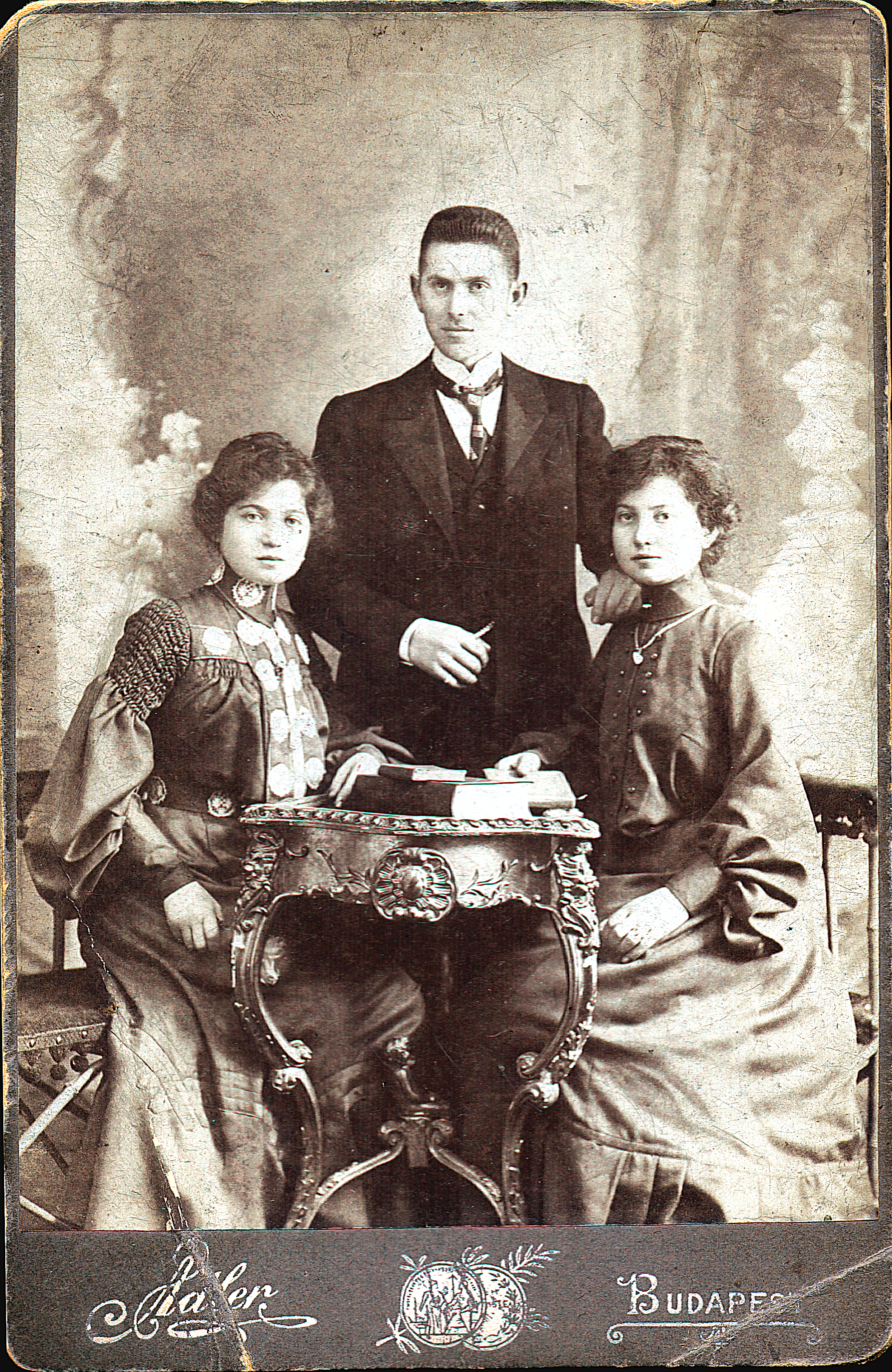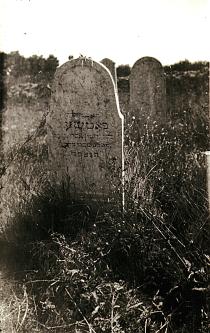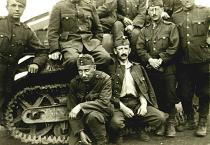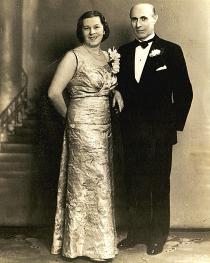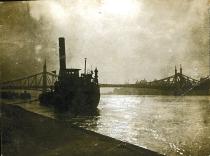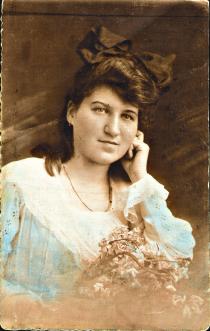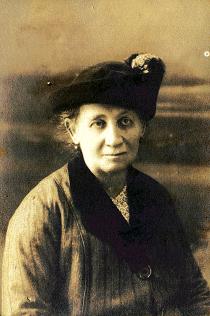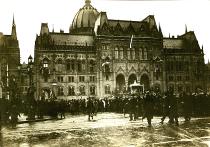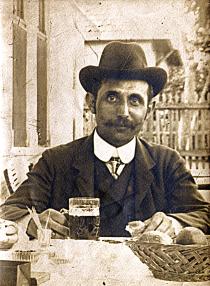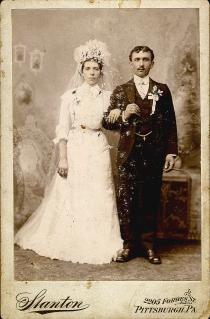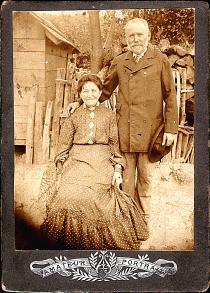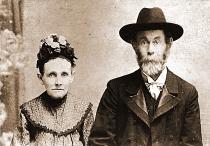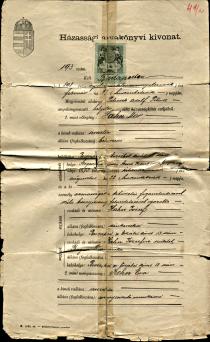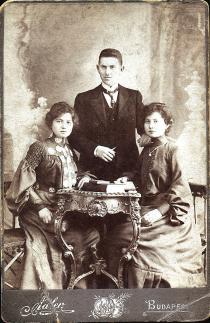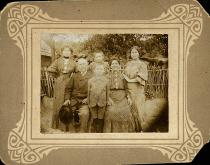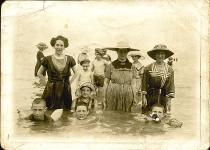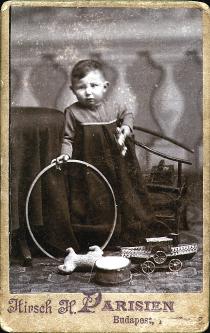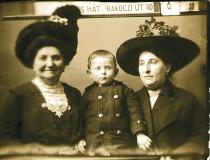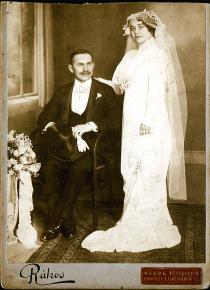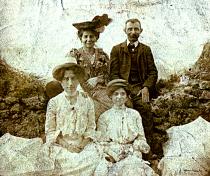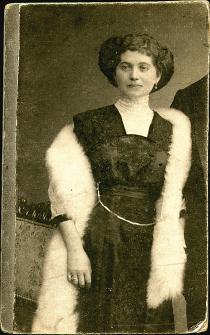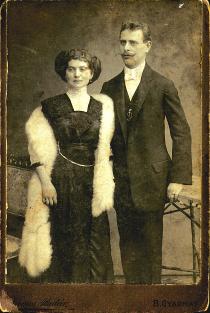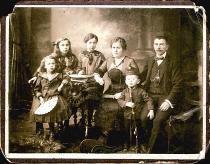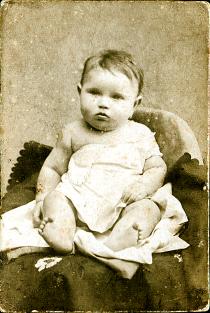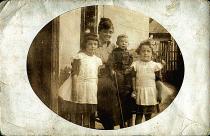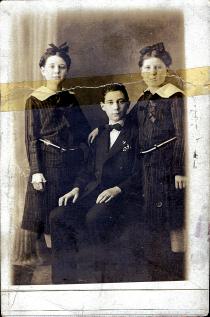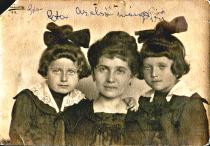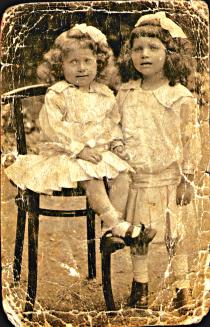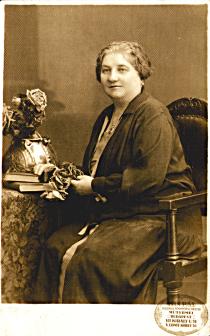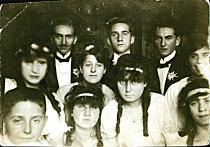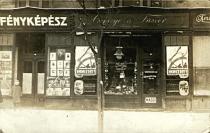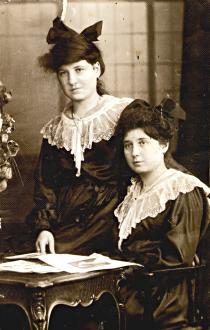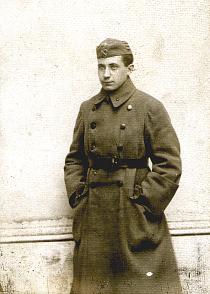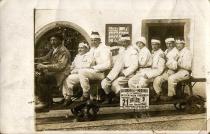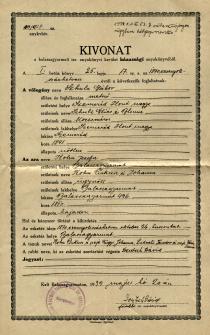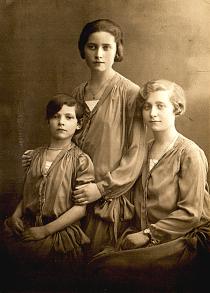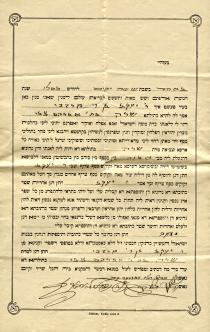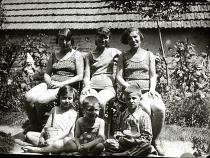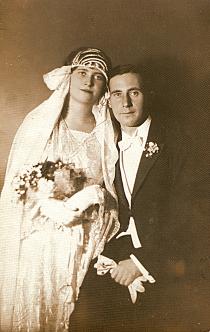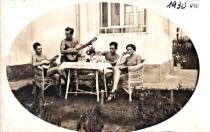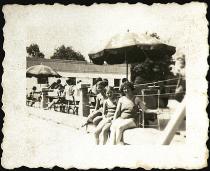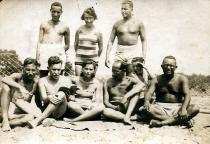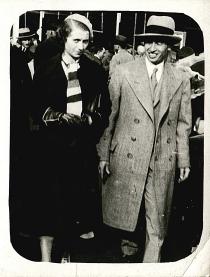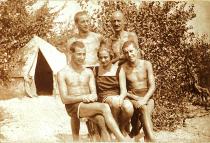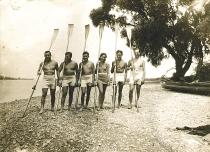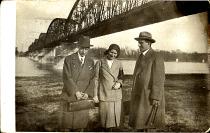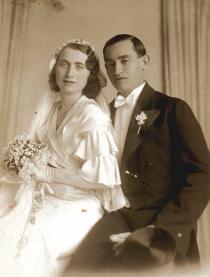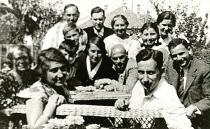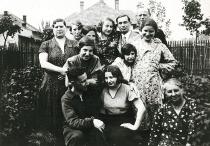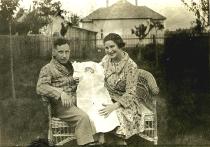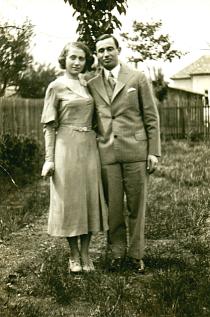This is my mother Jozefin Oblath (on the left), this is her twin sister Aunty Netka, and this is one of her brothers, Ferenc Oblath. The picture was taken in Budapest. Uncle Ferenc used to live in Budapest. My mom and her sister must have been visiting him. I have no idea when the picture was taken, if it was before they married or not.
My mom was born in 1887 in Ovar. I don't know what sort of school she finished. She was a housewife. I heard, that she was very good at sewing, and she used to sew bodices and shirts for peasant women, but she didn't work. I have no idea how she meet my dad. I don't even know where they got married either. My mom was pretty, very pretty, and her twin sister was also very pretty. And very kind, too. She had a bun. She had nice, brown hair, and she wasn't too tall. Unfortunately, our Mother committed suicide, and she was not the only one in the family. Both my grandfather and my uncle on mother's side committed suicide as well. Others from the Oblath family committed suicide as well, but they were not such close relatives.
Ferenc had a grocery shop in Bela Bartok Road, but it was called Miklos Horthy Road back then. Later he didn't work, and Miska took over the shop. Ferenc only had a wife, they didn't have children. When I came back [from the deportation], they were already dead. I don't know what happened to them.
About Aunty Netka I know the most, because we spent every summer at their place. Her husband, Sandor Weinberger was a merchant. They lived in Balassagyarmat for a long time, and they owned a textile shop there: a draperers and haberdashery. Sometimes Aunty Netka was in the shop, if she had to help something, or because uncle Sandor had to go somewhere, but mostly, her husband was there. It was not a big shop, they didn't have any employees.
In Balassagyarmat, they had their own house, but before that they lived in a rented flat. There were three rooms in the house: grandmother lived in one room, the parents in another one, and in the third one, the five children. When we went there in my childhood, this was how it was. They had a beautiful dining room, very nicely furnished; it had a really dark color, maybe even black, with a glass show-case. They didn't have a garden, just a little courtyard.
Aunty Netka had help, Aunty Mari. She was a many-skirted peasant woman. She cleaned the house, and did the laundry. But Aunty Netka cooked. I don't remember, where she lived in their old flat, but when they moved to their house, then in the back, there was a room, or maybe it was a room with a kitchen, and Aunty Mari lived there. She was with them for decades. Even, when they already lived in Budapest, she used to visit them frequently.
They were well-off, for a while. I think, they moved to Budapest because the shop went bankrupt. In Budapest they made men's shirts at home, Aunty Netka, and the two girls. Her husband dealt with the transportation and administration. When Aunty Netka and her family were already living in Budapest, I was already married, and had children, I got out of this close family circle, so I don't know so much about these things.
As far as I remember the husband of this aunty was a son of a rabbi. They kept a fully kosher household. I don't remember exactly when, but there were milky days, when there were only meals without any meat, I remember that much. For what occasion, I don't recall. And Esther's fasting, they kept everything. They were religious. They were not orthodox, although they are buried in the orthodox cemetery, so they didn't have payes.[editor's note: thus they were orthodox, but not Hasid]. My mother's sister wore a wig. When they moved to Budapest in the 1930's, she didn't wear it anymore, because of her children. After the war, Aunty Netka didn't wear a wig anymore. She let her hair grow long, she had beautiful snow-white hair. When she went out, she wore a hat. Even with a wig she used to wear a hat.
